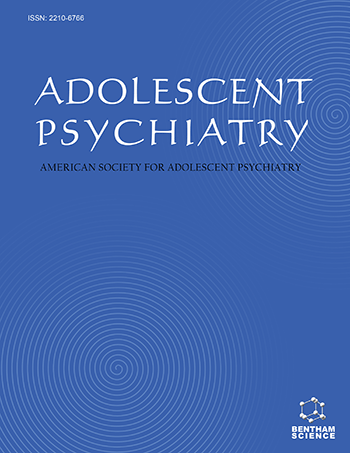Abstract
Until bright, creative, and alienated adolescents learn to make reasonable decisions, they will not engage in proactive, constructive, and creative change. Grounded in principles of reality therapy and choice theory, compassionate confrontation psychotherapy (CCP) stresses the concepts of conscious choice and acceptance of responsibility for ones actions. CCP provides a unique therapeutic experience to induce change. Viewed from this pragmatic and humanistic perspective, the overuse of psychiatric diagnoses and psychopharmacologic treatments inadvertently relieve gifted adolescents from accepting accountability for their choices. Evidence of the success of CCP can be found in the high percentage of alumni of the John Dewey Academy who are admitted to and complete their educations at leading colleges and graduate schools. Further evidence is provided by their academic performances at those institutions of higher learning.
Keywords: Adolescent psychotherapy, confrontation in psychotherapy, gifted adolescents, adolescent behavior disorders, CCP, alienated, Boarding School, Self-Destructive, Compassionate, gifted
Adolescent Psychiatry
Title: Compassionate Confrontation Psychotherapy: Working with Gifted but Self-Destructive Adolescents in a Therapeutic Boarding School
Volume: 1 Issue: 3
Author(s): Thomas Edward Bratter
Affiliation:
Keywords: Adolescent psychotherapy, confrontation in psychotherapy, gifted adolescents, adolescent behavior disorders, CCP, alienated, Boarding School, Self-Destructive, Compassionate, gifted
Abstract: Until bright, creative, and alienated adolescents learn to make reasonable decisions, they will not engage in proactive, constructive, and creative change. Grounded in principles of reality therapy and choice theory, compassionate confrontation psychotherapy (CCP) stresses the concepts of conscious choice and acceptance of responsibility for ones actions. CCP provides a unique therapeutic experience to induce change. Viewed from this pragmatic and humanistic perspective, the overuse of psychiatric diagnoses and psychopharmacologic treatments inadvertently relieve gifted adolescents from accepting accountability for their choices. Evidence of the success of CCP can be found in the high percentage of alumni of the John Dewey Academy who are admitted to and complete their educations at leading colleges and graduate schools. Further evidence is provided by their academic performances at those institutions of higher learning.
Export Options
About this article
Cite this article as:
Edward Bratter Thomas, Compassionate Confrontation Psychotherapy: Working with Gifted but Self-Destructive Adolescents in a Therapeutic Boarding School, Adolescent Psychiatry 2011; 1 (3) . https://dx.doi.org/10.2174/2210676611101030227
| DOI https://dx.doi.org/10.2174/2210676611101030227 |
Print ISSN 2210-6766 |
| Publisher Name Bentham Science Publisher |
Online ISSN 2210-6774 |
 19
19
- Author Guidelines
- Graphical Abstracts
- Fabricating and Stating False Information
- Research Misconduct
- Post Publication Discussions and Corrections
- Publishing Ethics and Rectitude
- Increase Visibility of Your Article
- Archiving Policies
- Peer Review Workflow
- Order Your Article Before Print
- Promote Your Article
- Manuscript Transfer Facility
- Editorial Policies
- Allegations from Whistleblowers
Related Articles
-
Adolescent Suicide and Suicide Prevention Programs: A Comparison Between Lithuania and Flanders
Adolescent Psychiatry Should Adolescents be Screened for Depression?
Adolescent Psychiatry Current Understanding of Dyslexia and Pilot Data on Efficacy of a Mindfulness Based Psychotherapy (MBR-RAM) Model
Adolescent Psychiatry Trauma Interventions using Mindfulness Based Extinction and Reconsolidation (TIMBER<sup>©</sup>) as Monotherapy for Chronic PTSD: A Pilot Study
Adolescent Psychiatry Commentary: Anonymous Encounters: Alcoholics Anonymous, Al-Anon, and Overeaters Anonymous
Adolescent Psychiatry Mental Health of Children of Immigrants and Ethnic Minorities in Europe
Adolescent Psychiatry Conflict of Interest as a Possible Factor in the Rise of Pediatric Bipolar Disorder
Adolescent Psychiatry The Use of a Geographic Information System (GIS) to Study Spatial Distribution and Factors Associated with Stress Among Thai Adolescents
Adolescent Psychiatry Culturally Informed Care of the Turkish-American Child, Adolescent, and Family
Adolescent Psychiatry Problematic Internet Use: A Case of Social Media Addiction
Adolescent Psychiatry Norwegian Children and Adolescents with ADHD - A Retrospective Clinical Study: Subtypes and Comorbid Conditions and Aspects of Cognitive Performance and Social Skills
Adolescent Psychiatry Psychopharmacologic Treatment of Children and Adolescents with Bipolar Disorder: A Review
Adolescent Psychiatry SUBJECT INDEX
Adolescent Psychiatry Childhood Hospitalisations for Physical Disease and Risk of Mental Disorders During Adolescence and Early Adulthood
Adolescent Psychiatry Family Psychoeducation in Clinical High Risk and First-Episode Psychosis
Adolescent Psychiatry Using Digital and Social Media Metrics to Develop Mental Health Approaches for Youth
Adolescent Psychiatry Child Welfare and Juvenile Justice in Lithuania: Historical and Critical Review
Adolescent Psychiatry The Rise of a Hostile Adolescent Population: The Syrian Refugee Problem
Adolescent Psychiatry New Pathways of Intervention for Adolescents at Clinical High Risk of Psychosis: Improving Meta-representation Skills and Strengthening Identity with Video-Confrontation Techniques
Adolescent Psychiatry Self Destructive and Self Harm Behavior in Adolescence — An Integration of Dynamic and Empirical Psychological Models
Adolescent Psychiatry

























